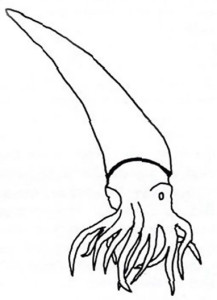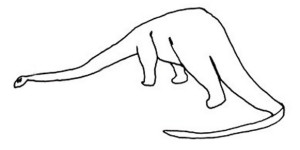By Rayarama Das Brahmachary
Recently, some college students ardently proclaimed a certain comic book writer to be their modern mythmaker, in honor of his exciting and weird superhero tales. This proclamation led me to reflect that, after all, a myth is supposed to be something that people believe in, or once did. My Webster’s Dictionary defines the word like this: “a usually traditional story of ostensibly historical events that serves to unfold part of the world view of a people, or explain a practice, belief, or natural phenomenon … an ill-founded belief held uncritically especially by an interested group.”
Clearly. comic book stories don’t fit this definition because they never pretend to be, or to have been, real. They are tales, but not exactly myths. If we want to consider the actual mythology of modern times, we have to look into the present beliefs which are “held uncritically” by modern man. There are many such beliefs, and the strongest and most fixed would seem to be typified by the commercial slogan: “Doctors recommend.” For this is the Day of Science. Science rules supreme in judgement and in reverence over civilized man’s every thought, word and deed, just as the oracles, omens and stars once influenced the lives of the Babylonians and Greeks. In education, for example, tremendous amounts of money are going towards scientific research, to the almost utter neglect of other areas of learning. In fact, many large corporations find that their top scientific minds can’t write reports in simple intelligible English.
In an article entitled ‘The Humanist Heartbeat Has Failed,” in the May 24, 1968 issue of LIFE, Professor James H. Billington remarks that. “A paltry one out of every thousand dollars of government funds given for basic research in 1966 went to the humanities. The much smaller amount given by private foundations to support research and teaching was some 23 times greater in the sciences than in the humanities.” These are big odds, and it isn’t rash to draw the conclusion that science is today valued above all other studies and pursuits.
 Science itself, of course, is neither bad nor good. It is a tool, like a scalpel: and if it’s used for cutting throats instead of cancers, the fault lies in the heart and mind of the man—or men—who are controlling it. Science—the attempt to comprehend and adjust to, or control, material Nature—has accomplished some nice feats: disease control, communications, heating, transportation. It would be as senseless to condemn these things as it would be to put a scalpel on trial for murder. At the same time, it would be equally senseless to laud these things as though they had given life some meaning, as though they had contributed to any real advancement in the human condition of consciousness. This would be like awarding the Nobel Prize to an iron lung.
Science itself, of course, is neither bad nor good. It is a tool, like a scalpel: and if it’s used for cutting throats instead of cancers, the fault lies in the heart and mind of the man—or men—who are controlling it. Science—the attempt to comprehend and adjust to, or control, material Nature—has accomplished some nice feats: disease control, communications, heating, transportation. It would be as senseless to condemn these things as it would be to put a scalpel on trial for murder. At the same time, it would be equally senseless to laud these things as though they had given life some meaning, as though they had contributed to any real advancement in the human condition of consciousness. This would be like awarding the Nobel Prize to an iron lung.
The Quality Of Life
All who live must die even the Universe itself lives and dies—and so to prolong life is not to insure it against the end. “Death comes when it will come,” and even the greatest scientific genius cannot hold life longer than his due. Some years ago the foremost physicist of India died in a simple plane crash—and all the inventions of science (including the plane itself) proved of no avail to him.
So it is not to avoid death that we should work, but to instill into what life we have some real quality—to use this life well and wisely. Otherwise it is a living death, even at its best. According to the great Scriptures of the world—the Bible, Koran, Bhagavad Gita, and others—the highest perfection of human life is reached in confrontation with God, followed by submission, love, and eternal association. Eternal association means that, in awakening to the existence and love of God, the living being becomes freed from the entanglements and designations of the material world, of which the body and its attendent annihilation are primary.
It would seem a simple matter to recognize the fact that life without goals, life without quality, life without value—is quite like the life of a machine. It is robot life. And an educational system which is devoted to fitting the human mind for a specified place in the modern machine complex is a school for the living dead. And, as I will try to prove, the replacement of God by evolution in the modern school system, and thereby in the thinking processes of modern man, has produced only zombies. But with one flaw: human beings don’t like to act the part of zombies, and the alternative is likely to be revolt, corruption, and the ruin of what civilization we have.
Evolution And Society
Instead of pleasing God, modern children are taught to “please evolution,” as it were. They are taught that the human race was thrown up out of Chaos by blind chance (“or God, if you like,” the teachers used to tell us. I don’t know if they can still say things like that in an American public school). Blind chance may just as easily throw us away again, and so the obvious necessity in the grim struggle for survival is to find a way to defeat both blind chance and all other competing species at the same time. Thus, we are taught, Mankind has constructed society, and society has so far proved the most effective step toward permanence that evolution has ever taken.
Society in this sense means the banding together of creatures of like mentality and structure for the purpose of prolonging the lives of the individuals of the community or species. This is done, apparently, by crippling, castrating or annihilating all other species of life. It is a concept of sophisticated bestiality, more ferocious in both fact and theory than the ravages of plague or the march of an ant army. And it is based on ignorance as utter as that of an ant—no, more profound yet, because the ant is at least acting as an ant. The human consciousness is capable of “graduating” from the school of evolution into the “workaday” world of spiritual life, and unless it is used in this way, it’s not human at all.
And the great ignorance here is the idea that killing other creatures, or trying to control the intricate functions of Nature, will lead to eternal existence either for oneself or one’s race or species. This is like trying to tune in a television station on a radio receiver. The body is product of material Nature, and the first law of Nature is change. Therefore the body, in one form or another, must die. It is only the soul—or consciousness, if you like—which goes on, because this consciousness, in its purified state, is independent of Nature.
Immortality
These attempts at prolonging life and putting off death are reflections of the irrepressible tendency of all forms of life to gravitate toward immortality. This is because of the eternal nature of the soul, which inhabits each living form. The form is temporary, but the soul is not, and it is trying, in ignorance, to get back to its original position. And, in its ignorance, the struggle for survival, the competition with other life forms, goes on, and consumes the energy, the attention, the hopes of the creature, until it dies and takes a new body, to try again.
Now the difficulty in trying to “please evolution”—that is, develop oneself so that the race, if not the individual, can continue to survive—is that no one really knows what will work and what won’t in the long run. Many a modern moralist has tried to construct an ethical system on such foundations, but the fact that evolution remains a theory, remains uncertain in so very many of its details, must frustrate every effort at coherence and consistency. No one knows what activities of the human race will “eliminate it from evolution,” as Lecomte de Nouy has rephrased sin. And no one knows what activities will help it to survive. There are no known principles here, the theories of life origins change almost monthly, and so the attempt to establish a “moral” system, or any system whatever, must come to nil.
Morality means how to act towards some goal. But if the goal is unknown, uncertain, untried, unstable, and unfriendly—then where is the scope for a workable morality? And yet, without morality, without mutually agreed-upon patterns of behavior, society cannot exist. And society, we have been told, “pleases evolution”—it will help us to survive .
So we come to a double bind, an irreconcilable fault in the whole scheme of materialistic moralizing. We are trying to “please evolution” without knowing what it wants.
Theory And Process Of Evolution
 That there is evolution, and that there is a goal, an end, to the process, is not refuted here. In fact, the concept of evolution can be found in The Padma Purana, one of the Vedic Scriptures of vast antiquity. In this Purana, it is stated that the living forms in this Universe first arose as the aquatic animals, then evolved to the land vegetables, then on to reptiles, insects, birds, beasts and, at the end, humans. Even the most skeptical scholar cannot date The Padma Purana later than a good many hundred years before Darwin, and so this is a surprising example of scientific theory very slowly catching up to what was already presented by revelation long ago.
That there is evolution, and that there is a goal, an end, to the process, is not refuted here. In fact, the concept of evolution can be found in The Padma Purana, one of the Vedic Scriptures of vast antiquity. In this Purana, it is stated that the living forms in this Universe first arose as the aquatic animals, then evolved to the land vegetables, then on to reptiles, insects, birds, beasts and, at the end, humans. Even the most skeptical scholar cannot date The Padma Purana later than a good many hundred years before Darwin, and so this is a surprising example of scientific theory very slowly catching up to what was already presented by revelation long ago.
Evolution, according to the Vedas, is the process of the gradual development of consciousness from body to body, until the civilized human form is reached. Development of consciousness means that consciousness is more comprehensive, not merely different: a tree may experience the warmth of the sunlight and the cold of the night, but he will never experience running or jumping. The human, however, experiences in principle all that the tree has known, and more. In this way complete consciousness, or the perfection of conscious development, means to experience the sum total, the Absolute Truth. And the Absolute Truth is God.
So the goal of evolution is for the living being, after innumerable lifetimes of experience within body after body (The Padma Purana lists 8, 400, 000 species), to come to an awareness of his actual, transcendental position in relationship to Krishna, the Godhead. This direction of development, then, is “natural.” It is the obvious and intended course of progress for the human life form. All other life forms are only like the grades in a school, leading to the senior year. And, from that senior grade, one is expected to go forward out of school, not merely to remain fixed, or even to fall behind.
Human Purpose
Because the human life form is possessed of this advanced consciousness, it is “natural” for human beings to seek a direction, a way out of the struggle for survival, a solution to the riddle of immortality vs. death. One cannot, as so many philosophers would like to, blunt off the edge of this sword of awareness, become directionless, and at the same time find happiness. For happiness means fulfillment, and fulfillment for human life means the attainment of complete consciousness, unaffected by the conditions of time or Nature. This is the ultimate perfection. And, I must restate for emphasis, the drive toward this perfection is “natural” in man.
Now, the general drift of materialistic civilization has always been toward the fulfillment of these same drives, but through the exploitation of Nature rather than through the development of spiritual consciousness. The discovery and development of the theory of evolution is, after all, only an outgrowth of man’s attempt to achieve immortality and full knowledge on his own. This exploitation of Nature, however, always leads to frustration. Take nuclear energy for an example: along with all the promise of a superefficient, wonderfully comfortable world comes the terrible reality of the Bomb.
Material Nature is endlessly changing, and the patterns would seem to be quite without limit. Therefore the plans which are laid toward the control and utilization of Nature are generally defeated: There is always at least one factor that no one thought of, and this changes everything.
 A nice example of this is the theory of evolution itself: It is at basis a try at clocking the changes of Nature in order to get one jump ahead, and in this way insure preservation of the species, if not of the individual. And yet, as this article is meant to prove, the theory itself has become a factor in the dissolution of modern civilization. This is that double bind again, which is inescapable so long as one’s footing remains firmly on the material platform. As soon as everything becomes automatic and predictable, life has lost its zest, and human nature will tend to blaze a new trail, even over the ruins of what went before, in its inexorable pursuit of the Absolute . This is why over-sophistication is generally the precursor of decline in any society. When people have fooled themselves into imagining that they know everything, they have lost their reason to live. Not because full knowledge is a bleak state, but because they don’t actually know, and the “everything” they foolishly accept, out of pride or by education, is utterly unfulfilling. In this sad situation, oblivion becomes a welcome prospect.
A nice example of this is the theory of evolution itself: It is at basis a try at clocking the changes of Nature in order to get one jump ahead, and in this way insure preservation of the species, if not of the individual. And yet, as this article is meant to prove, the theory itself has become a factor in the dissolution of modern civilization. This is that double bind again, which is inescapable so long as one’s footing remains firmly on the material platform. As soon as everything becomes automatic and predictable, life has lost its zest, and human nature will tend to blaze a new trail, even over the ruins of what went before, in its inexorable pursuit of the Absolute . This is why over-sophistication is generally the precursor of decline in any society. When people have fooled themselves into imagining that they know everything, they have lost their reason to live. Not because full knowledge is a bleak state, but because they don’t actually know, and the “everything” they foolishly accept, out of pride or by education, is utterly unfulfilling. In this sad situation, oblivion becomes a welcome prospect.
Spiritual Fulfilment
 Unlike material pursuits, which must end in defeat, spiritual life is an eternal adventure. There is, in the awakening of full consciousness, a satisfaction unparalelled by any experience of the mundane world, as the words of all great saints and mystics attest. And, in the development of loving relationships with God, there is an eternal competition to give pleasure rather than to take—a competition between the devotee and Krishna, Who happily responds. And there is a security in the faith in eternal life which no concept of materialistic philosophy can establish.
Unlike material pursuits, which must end in defeat, spiritual life is an eternal adventure. There is, in the awakening of full consciousness, a satisfaction unparalelled by any experience of the mundane world, as the words of all great saints and mystics attest. And, in the development of loving relationships with God, there is an eternal competition to give pleasure rather than to take—a competition between the devotee and Krishna, Who happily responds. And there is a security in the faith in eternal life which no concept of materialistic philosophy can establish.
Faith is, of course. the whipping boy of modern science. But no scientist has ever produced a theory or concept to remotely approach it in terms of human happiness. On the contrary, modern cynics are little more than dead stones compared to those who actually believe in God, in goodness, and in the immortality of the soul. The hopeless condition of modern mentality is a result of this loss of faith, and if this is progress, one must sincerely wonder where it’s pointing. Not that faith is ever absent. It has simply, now, been fixed in the material concept of life—in science, evolution, and so forth.
 At this point, we can see that the goals of the materialist and of the spiritualist are, to a degree, the same: eternal life (for self or race, as you like), full knowledge, and bliss. And we can further see that the latter two, happiness and knowledge, are qualities of awareness, or consciousness . It takes no more than the proper adjustment in one’s consciousness to have happiness and knowledge—and eternal life too, though this will be less apparent. However, if one involves one’s consciousness simply in understanding the mechanics of the material universe, the driving of awareness away from self and into the complexities of an unpredictable machine can only result in ignorance and misery—and death, too, though this again will be less apparent.
At this point, we can see that the goals of the materialist and of the spiritualist are, to a degree, the same: eternal life (for self or race, as you like), full knowledge, and bliss. And we can further see that the latter two, happiness and knowledge, are qualities of awareness, or consciousness . It takes no more than the proper adjustment in one’s consciousness to have happiness and knowledge—and eternal life too, though this will be less apparent. However, if one involves one’s consciousness simply in understanding the mechanics of the material universe, the driving of awareness away from self and into the complexities of an unpredictable machine can only result in ignorance and misery—and death, too, though this again will be less apparent.
Morality
 Now, how to reach one’s goals, as mentioned before, is called morality. We should understand this point clearly: one doesn’t just behave. One acts toward some goal. He may desire to please parents, society, evolution, teachers, God, lust, etc. But, always, one’s conduct, at least in the human form of life, has direction. And this conduct and its direction are called morality.
Now, how to reach one’s goals, as mentioned before, is called morality. We should understand this point clearly: one doesn’t just behave. One acts toward some goal. He may desire to please parents, society, evolution, teachers, God, lust, etc. But, always, one’s conduct, at least in the human form of life, has direction. And this conduct and its direction are called morality.
Today, morality as we’ve known it has collapsed because the goals are anything but clear, and not really desirable. People, in being asked to “please evolution,” are asked to submit blindly to the good of the whole, according to the principles of an unsure theory. It is not the sort of request an intelligent person could comply with, and so our present youth, the first real target of full-scale evolutionism, has revolted, has lost hope, and is on the verge not only of smashing the old society, but of replacing it with a blind and vicious, utterly licentious anarchy.
No real morality can be built along materialistic lines. This is because in the end materialism offers nothing but death to its devotees. Educated away from God, facing the bleak prospect of sacrificing their lives to an uncaring force of Nature, it is little wonder that modern youth has rejected the old standards, and is hurling all its energies into grasping sense gratification to the fullest for what little time it may have. This is, after all, the intelligent thing to do under the circumstances.
The “Moral” Populace
Those who imagine themselves to be moral, but who have no understanding of the existence of God, are indeed more damned than those whose lives are devoted to unlimited sex and liquor. At least the sinful haven’t deceived themselves, and can therefore be saved by reasonable arguments. The self-righteous, convinced of their own perfection, are unapproachable by man or God. They are the truly evil in society, the worst of men, and it is of them that anarchy and all the other corruptions of society are spawned.
 From such “moralists”—and it would seem that hardly any other kind exists today—revolt and ruin spring in full virulence, and not, please note, from the “wicked.” Not that the criminal elements of society are “good.” But they are, after all, at the mercy of the “good,” who have taught them the arbitrary rules of good and bad. Only when God sets the standard and that means God as He presents Himself in Scripture can the real values of human life, of all life, be set.
From such “moralists”—and it would seem that hardly any other kind exists today—revolt and ruin spring in full virulence, and not, please note, from the “wicked.” Not that the criminal elements of society are “good.” But they are, after all, at the mercy of the “good,” who have taught them the arbitrary rules of good and bad. Only when God sets the standard and that means God as He presents Himself in Scripture can the real values of human life, of all life, be set.
 This may seem Utopian, but please understand that it isn’t the faithful who are the ranting visionaries of today. The evolutionists and materialists in general are far more extravagant when it comes to building Utopias than any mystic out of Arabia. The only difficulty is that the materialistic Utopias have a way of failing to workout. Look, if you need an example, into any grade school textbook, and read about New York City. How wonderful it must be! So many giant buildings, so many bridges, so many trains, so many museums and monuments, so many people, millions of dollars, tons of food, dozens of restaurants, hundreds of theaters, scores of parks, zoos, gardens. The millennium. Then take a walk through the streets of New York City. Talk to the people. The balloon will break with stunning speed. As the saying goes, “I wouldn’t wanna live there.”
This may seem Utopian, but please understand that it isn’t the faithful who are the ranting visionaries of today. The evolutionists and materialists in general are far more extravagant when it comes to building Utopias than any mystic out of Arabia. The only difficulty is that the materialistic Utopias have a way of failing to workout. Look, if you need an example, into any grade school textbook, and read about New York City. How wonderful it must be! So many giant buildings, so many bridges, so many trains, so many museums and monuments, so many people, millions of dollars, tons of food, dozens of restaurants, hundreds of theaters, scores of parks, zoos, gardens. The millennium. Then take a walk through the streets of New York City. Talk to the people. The balloon will break with stunning speed. As the saying goes, “I wouldn’t wanna live there.”
This is the frustrating nature of materialistic success. There is, in fact, no success without God. And, for one whose heart is set on God, there is no failure.
Individuality
 More than all else, the basic shortcoming in educating children to “please evolution” is that no scope is admitted for the individual’s hopes and desires. All must be sacrificed to the Whole, to the country or race or species or life force. Such a philosophy is far more grim than the grimmest Calvinism, far more hopeless and barbarian than the mythologies of the Norse.
More than all else, the basic shortcoming in educating children to “please evolution” is that no scope is admitted for the individual’s hopes and desires. All must be sacrificed to the Whole, to the country or race or species or life force. Such a philosophy is far more grim than the grimmest Calvinism, far more hopeless and barbarian than the mythologies of the Norse.
The highly developed consciousness which is “natural” to human life is thus diverted, and like a sword turned back by an iron buckler, it may well cut the man who holds it. Prevented from pursuing his real direction, modern man—and more especially modern youth—is restless and empty, hopeless and angry, anxious and tragic and dangerous.
No philosophy, no morality, no system of thought or discipline has ever arisen which can, pragmatically, take the place of that real religion which is a vehicle for reaching God. In God consciousness the individual has his specific, eternal relationship with the Creator, Lover, Friend and Father of all. And acting as friend, child, lover and creature of God, the individual is able to benefit all who live, by offering to them the opportunity to advance out of the struggle for survival, and into the transcendental position of love of Godhead.
In this way. Krishna Consciousness fulfills the needs, completely and eternally, of the individual, the community, both human and universal—and of the Whole, which is the desire of the Supreme Godhead, Sri Krishna. This is not merely an alternative to chaos and anarchy. Such an alternative would necessarily be mundane. This is a final solution for the living being. It is the end of evolution.

Leave a Reply